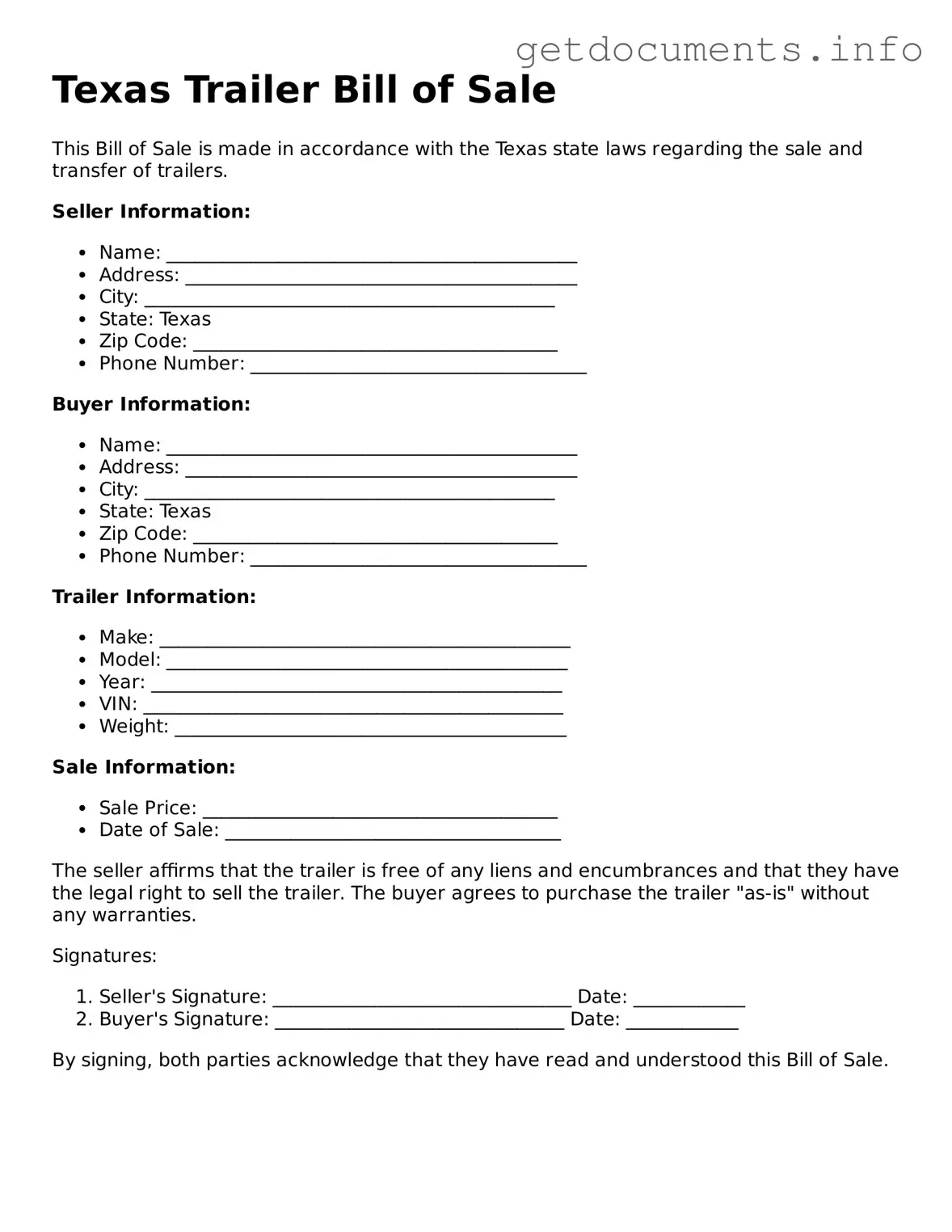Free Trailer Bill of Sale Template for Texas
The Texas Trailer Bill of Sale form is a legal document used to transfer ownership of a trailer from one party to another. This form outlines essential details, such as the buyer's and seller's information, the trailer's description, and the sale price. Ensuring this document is properly filled out protects both parties and facilitates a smooth transaction.
To get started, fill out the form by clicking the button below.
Access Trailer Bill of Sale Editor

Free Trailer Bill of Sale Template for Texas
Access Trailer Bill of Sale Editor
Got places to be? Complete the form fast
Fill out Trailer Bill of Sale online and avoid printing or scanning.
Access Trailer Bill of Sale Editor
or
⇩ PDF File
